Takeout Weed Killer Lawsuit: Were You or A Loved One Diagnosed With Non-Hodgkins Lymphoma?
The recent surge in litigation surrounding the Takeout weed killer and its alleged link to Non-Hodgkin's Lymphoma has ignited a pertinent discussion on the safety of glyphosate-based herbicides. As affected individuals and their families come forward to seek compensation, the spotlight has intensified on the rigorous evaluation and transparency of chemical products' potential health impacts. This unfolding scenario raises critical questions about consumer safety, corporate accountability, and the adequacy of existing regulatory frameworks. As we navigate through the complexities of these legal battles, one must ponder the broader implications for public health and environmental safety standards.

Understanding Glyphosate
Glyphosate, a widely used herbicide, has become the center of legal controversies due to its alleged connection to Non-Hodgkin Lymphoma in individuals exposed to it. As a non-selective systemic herbicide, glyphosate is employed across various agricultural and non-agricultural settings to manage weeds. Its prevalent usage worldwide has led to pervasive environmental presence, raising concerns about human health implications. Research and reports have scrutinized glyphosate's safety profile, specifically its potential carcinogenic properties. These concerns have precipitated numerous lawsuits from individuals claiming that prolonged exposure to glyphosate-based products contributed to their Non-Hodgkin Lymphoma diagnosis. The legal battles hinge on the debate over glyphosate's carcinogenicity, its regulation, and the adequacy of warnings provided to users about potential health risks.
Takeout Weed Killer Products

Several products, including Takeout, Takeout Systemic Weed & Grass Killer Ready To Use, Dragon Easy Trim, Kleer-Out, and ACME(R) Systemic Weed & Grass Killer, have come under scrutiny for their alleged link to Non-Hodgkin Lymphoma following exposure to their glyphosate content. These herbicides, marketed for their efficacy in eliminating unwanted vegetation, are now at the center of health and safety investigations. Their common ingredient, glyphosate, a broad-spectrum systemic herbicide, has raised concerns among consumers and health advocates alike. As legal actions unfold, the focus intensifies on the potential health risks associated with prolonged or substantial exposure to these products, prompting a reevaluation of their safety profiles and regulatory approvals in the context of public health.
Diagnosis Criteria

Understanding the diagnosis criteria for Non-Hodgkin Lymphoma is crucial for individuals who have been exposed to herbicides like Takeout and are seeking legal recourse. Non-Hodgkin Lymphoma, a diverse group of blood cancers, involves the abnormal growth of lymphocytes, white blood cells integral to the immune system. Diagnosis typically requires a combination of physical examinations, blood tests, imaging tests (like CT scans and PET scans), and a biopsy of affected lymph nodes or tissues. The biopsy, examined under a microscope by a pathologist, confirms the presence of cancerous cells and identifies the specific type of lymphoma. This precise diagnosis is fundamental in establishing a direct correlation between herbicide exposure and the development of Non-Hodgkin Lymphoma, a critical step in pursuing legal action.
Filing a Lawsuit

Initiating a lawsuit for injuries linked to herbicide exposure, such as Non-Hodgkin Lymphoma from Takeout weed killer, necessitates a clear understanding of legal procedures and eligibility criteria. The process begins with gathering all relevant medical records, employment history, and evidence of exposure to the product in question. This documentation is crucial for establishing a direct link between the herbicide and the diagnosed condition. Next, consulting with a specialized attorney experienced in handling similar cases is essential. They can provide a comprehensive evaluation of the case, guide through the legal landscape, and develop a strategic approach to litigation. The attorney will then file a lawsuit on behalf of the plaintiff, officially starting the legal process to seek compensation for damages incurred due to the exposure.
Eligibility for Compensation
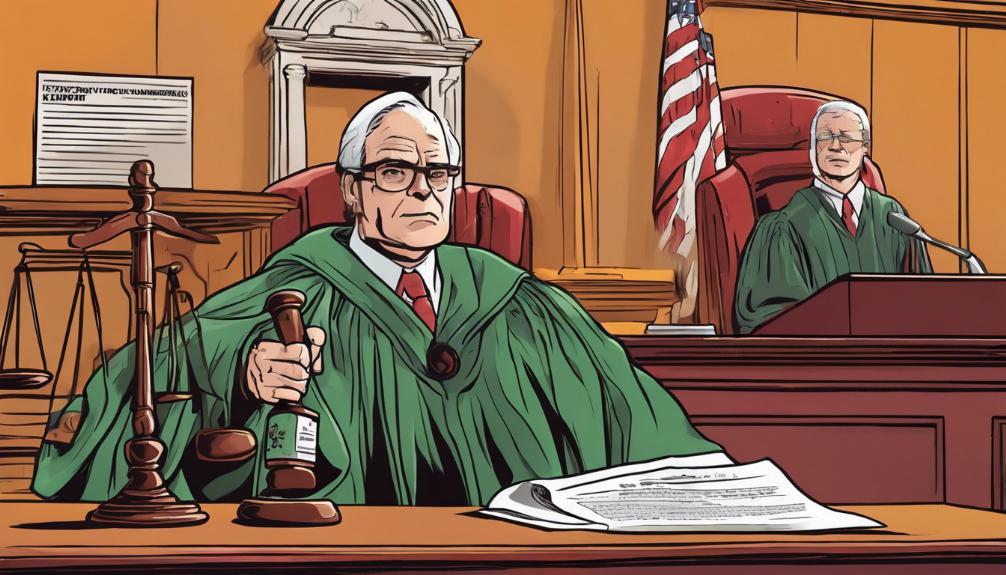
After exploring the process of filing a lawsuit for injuries linked to herbicide exposure, it's crucial to examine the criteria that determine eligibility for compensation. Individuals who have been diagnosed with Non-Hodgkin Lymphoma following exposure to glyphosate-containing products, such as Takeout, Takeout Systemic Weed & Grass Killer Ready To Use, and others listed, may be eligible for compensation. The foundation of eligibility revolves around the proven link between the herbicide exposure and the subsequent diagnosis. It is essential for affected persons to have a documented medical diagnosis of Non-Hodgkin Lymphoma that can be directly associated with the use of the specified weed killer products. Eligibility extends to both direct users of the product and those who have been inadvertently exposed.
Contacting an Injury Lawyer
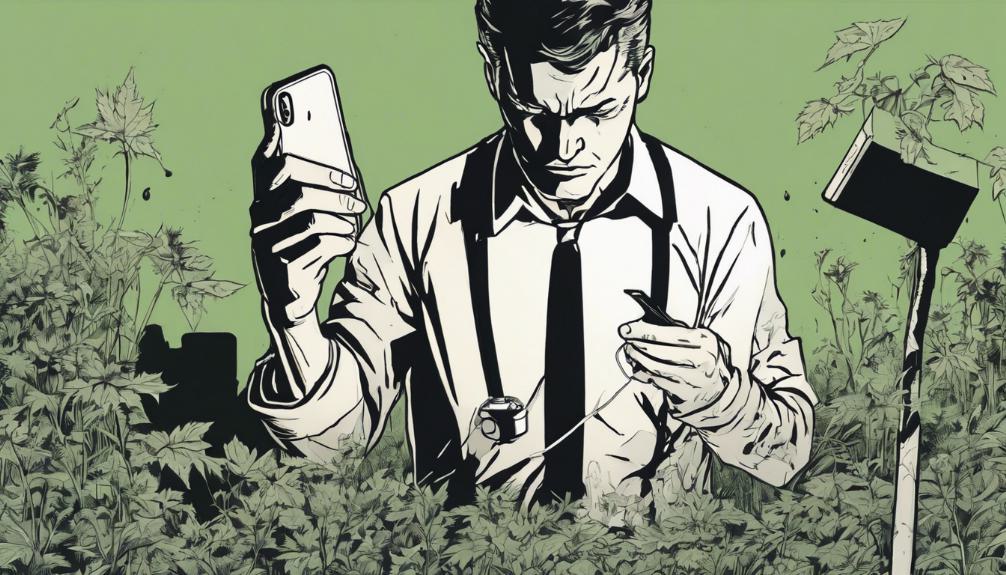
Seeking the expertise of an injury lawyer is a critical step for individuals aiming to navigate the complexities of filing a lawsuit for injuries linked to herbicide exposure. The legal landscape surrounding cases against manufacturers of products like Takeout, known for containing glyphosate, can be intricate and challenging. An experienced injury attorney provides essential guidance, from evaluating the specifics of your case to determining eligibility for compensation. They assist in gathering necessary evidence and crafting a compelling case to present in court. Contacting a lawyer promptly ensures that legal actions commence within applicable statutes of limitations, safeguarding your right to seek justice and financial redress for the harm suffered due to herbicide exposure.
Health Consultation Advice
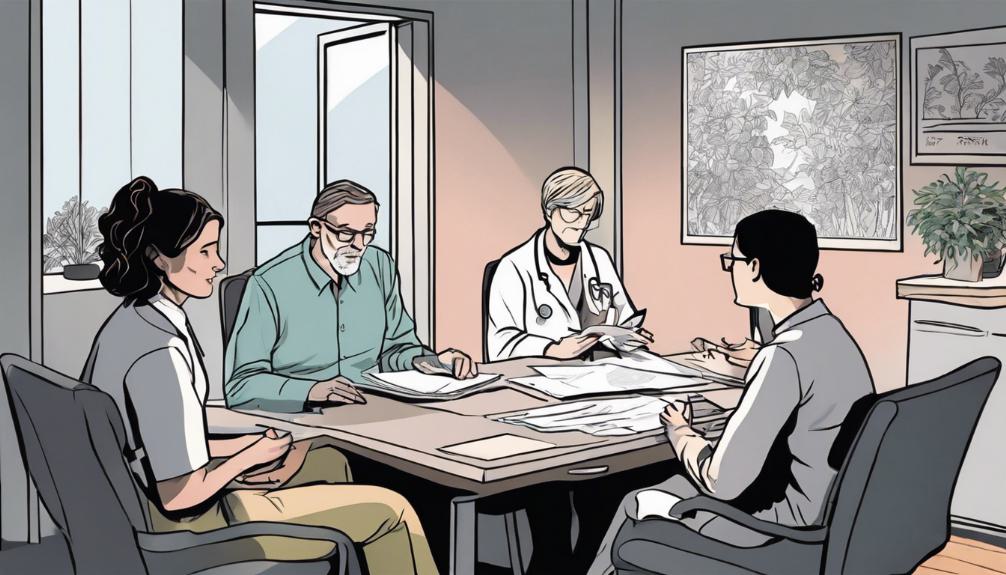
For individuals who believe they have been exposed to harmful substances such as glyphosate, it is imperative to consult a healthcare professional promptly to address any related health concerns. Exposure to such chemicals, linked to serious conditions like Non-Hodgkin Lymphoma, necessitates immediate medical attention. Early diagnosis and intervention can significantly influence the management and outcome of potential health issues. It is recommended to document any symptoms and potential exposure details, as this information can be crucial for healthcare providers in assessing and determining the appropriate course of action. Seeking medical advice not only supports individual health and well-being but also ensures that any health-related claims are substantiated by professional medical assessments and records.
Drug Injury Legal Actions
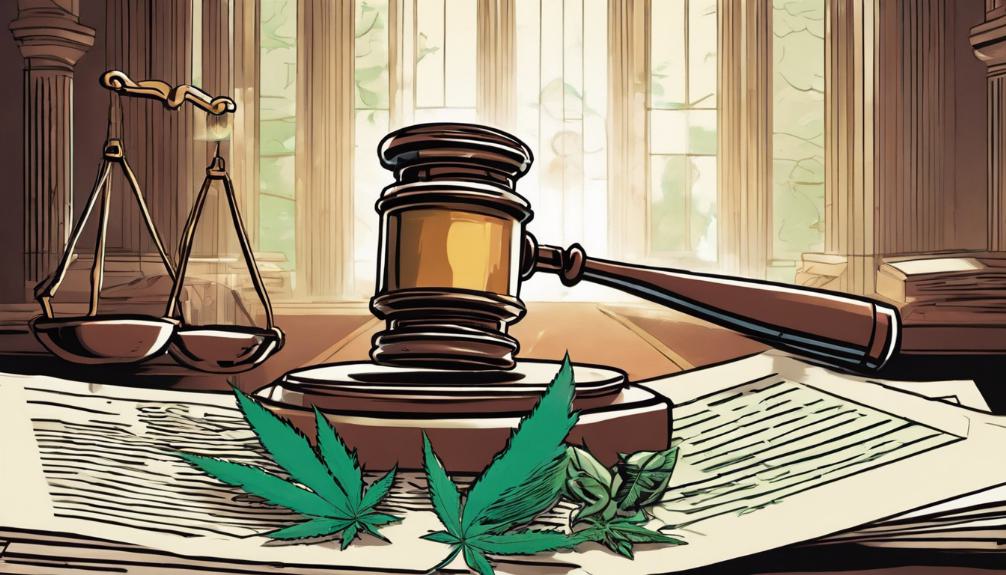
Navigating the legal landscape, individuals harmed by prescription drugs, over-the-counter medications, and vaccines have the right to pursue compensation through drug injury lawsuits. This pathway allows those adversely affected to hold pharmaceutical companies accountable for the harm caused by their products. Lawsuits can cover a wide range of drugs, including widely used medications like Prilosec, Nexium, Tylenol, and newer treatments such as Ozempic, Wegovy, and Mounjaro. Additionally, legal actions extend to vaccine injuries, encompassing conditions like Guillain-Barre Syndrome from the Flu Vaccine or SIRVA Vaccine Shoulder Injury. Victims of drug-related injuries, notably from substances like Ranitidine or Zantac, which contained NDMA, a potential carcinogen, are also seeking justice and compensation through the judicial system.
Medical Device Lawsuits
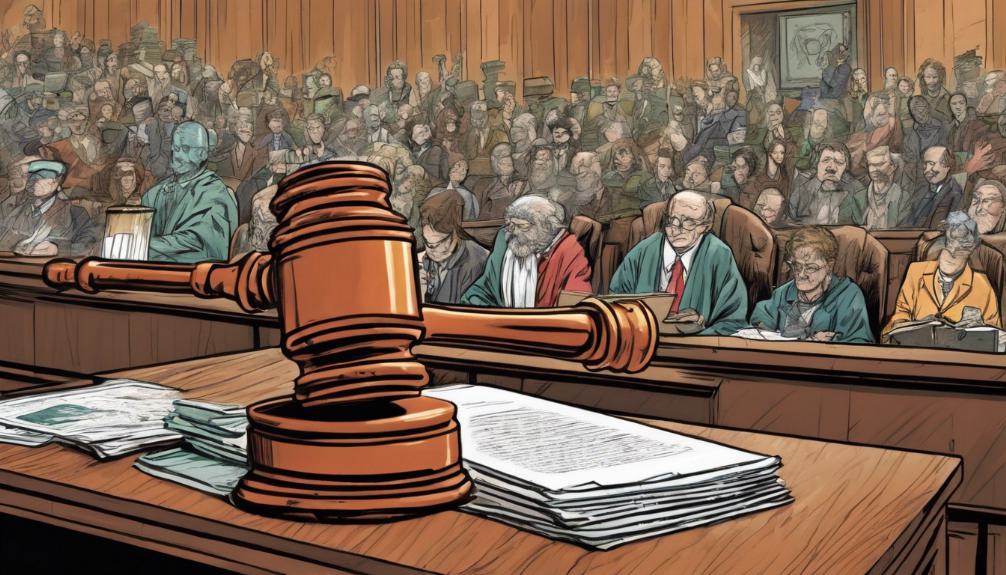
While drug injury legal actions hold pharmaceutical companies accountable for harm caused by medications and vaccines, lawsuits related to medical devices similarly address the repercussions of defective or dangerous medical products on patients' health. These legal actions encompass a wide range of devices, including Transvaginal Mesh, Hernia Mesh, Hip Replacements, Breast Implants, and CPAP devices. Affected individuals may experience severe complications, leading to significant physical and financial burdens. The complexity of these cases often requires specialized legal expertise to navigate the intricacies of medical device litigation. By pursuing legal action, plaintiffs aim to secure compensation for their injuries, hold manufacturers accountable for negligence or failure to warn about potential risks, and ultimately, enforce higher standards of product safety and quality in the healthcare industry.
Other Injury Claims
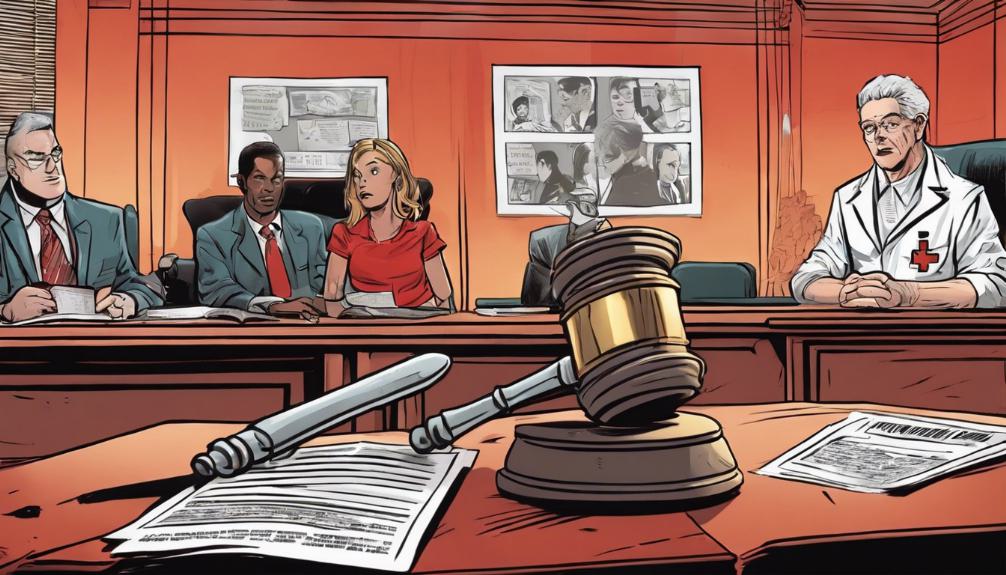
Exploring the realm of other injury claims reveals a diverse landscape marked by legal actions against products and incidents ranging from talcum powder and firefighting foam to sexual assault by ride-sharing drivers and social media addiction. These claims underscore the broad spectrum of potential hazards people encounter, which can have profound impacts on their health and well-being. Legal challenges in this domain aim to hold manufacturers, service providers, and other entities accountable for their roles in exposing individuals to harm. From cancer diagnoses linked to consumer products to psychological and physical injuries stemming from technology use or service interactions, the pursuit of justice in these cases is a critical avenue for affected individuals to seek compensation and drive changes in corporate practices and product safety standards.
Copyright and Legal Notes
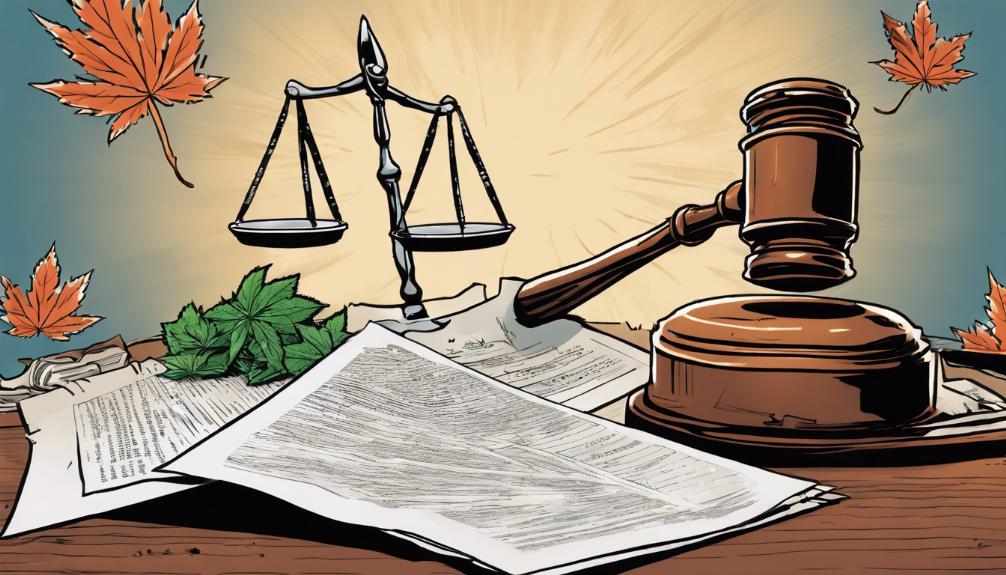
Understanding the copyright and legal framework surrounding injury lawsuits is essential for individuals seeking to navigate the complexities of litigation. The content provided on injury lawsuits, including those against Takeout weed killer and various drugs or medical devices, is protected under copyright laws. This ensures that the information remains accurate and unaltered, serving as a reliable resource for affected parties. Moreover, the legal notes emphasize that the listing of products and companies is for identification and does not imply guilt or defectiveness. These provisions are crucial for maintaining the integrity of the legal process and ensuring that individuals have access to factual and unbiased information as they consider pursuing legal action for injuries sustained from exposure to potentially harmful products.
Seeking Legal Advice

Seeking legal advice is a crucial step for individuals who believe they have been adversely affected by exposure to harmful products or medical devices. When it comes to cases like the Takeout weed killer lawsuit, where individuals diagnosed with Non-Hodgkin Lymphoma after exposure to glyphosate, consulting with an injury lawyer can provide essential guidance. Lawyers specializing in such cases can offer a free case review to assess the details of your situation and determine the viability of your claim. They are equipped with the knowledge and resources to navigate the complexities of product liability law. Moreover, prompt legal consultation ensures that any claim is filed within the relevant statutes of limitations, safeguarding your right to seek justice and potential compensation.
Compensation Process

The compensation process for individuals exposed to hazardous products or medical devices, such as those involved in the Takeout weed killer lawsuit, often begins with the filing of a claim or lawsuit against the responsible parties. This legal action seeks to hold manufacturers accountable for injuries sustained due to exposure to their products, such as Non-Hodgkin Lymphoma linked to glyphosate in Takeout weed killer. After filing, the case may proceed through stages of litigation or enter settlement negotiations. Compensation can cover medical bills, lost wages, pain and suffering, and other damages. It's crucial for affected individuals to consult with a specialized attorney to navigate the complexities of the legal process and maximize their potential compensation.
Frequently Asked Questions
What Are the Long-Term Health Effects of Non-Hodgkin Lymphoma Survivors After Exposure to Glyphosate-Based Products?**
The long-term health effects for survivors of Non-Hodgkin Lymphoma, particularly those exposed to glyphosate-based products, can vary significantly. These may include increased risks of secondary cancers, persistent fatigue, cardiovascular issues, and potential impacts on mental health. Continuous medical monitoring and supportive care are crucial for managing these long-term consequences. It's imperative for survivors to have regular health check-ups to address any arising health issues promptly.
This Question Explores the Aftermath of Surviving Non-Hodgkin Lymphoma, Focusing on the Long-Term Health Challenges That Might Not Be Directly Addressed in the Initial Lawsuit and Compensation Process.
Surviving Non-Hodgkin Lymphoma presents a range of long-term health challenges that survivors may face beyond the initial diagnosis and treatment phase. These challenges can include ongoing physical, emotional, and financial impacts, which may not be fully addressed through initial lawsuit settlements or compensation processes. It is important for survivors to seek comprehensive post-recovery support and care to manage these long-term effects effectively.
How Can Individuals Minimize Their Risk of Exposure to Glyphosate in Daily Life, Especially if They Live Near Agricultural Areas Where Such Chemicals Are Widely Used?**
To minimize exposure to glyphosate, especially in agricultural areas, individuals should consider wearing protective clothing and equipment when near treated fields. Consuming organic produce, which is less likely to be treated with glyphosate, can also reduce risk. Regularly monitoring local agricultural spraying schedules and advocating for responsible pesticide use within the community are proactive steps. Consulting environmental health experts for personalized advice may further enhance safety measures against glyphosate exposure.
This Question Seeks Practical Advice for Individuals Concerned About Inadvertent Exposure to Glyphosate Through Environmental Factors Beyond the Use of Specific Products Like Takeout Weed Killer.
To mitigate inadvertent exposure to glyphosate, individuals should maintain awareness of local agricultural practices and limit their direct contact with areas recently treated with herbicides. Utilizing personal protective equipment, such as gloves and masks during gardening or when near treated fields, can offer additional protection. Regular washing of produce and choosing organic options when possible can also reduce exposure through consumption. Engaging with community initiatives for safer agricultural practices may further minimize risk.
Are There Any Specific Dietary or Lifestyle Changes Recommended for Individuals Who Have Been Exposed to Glyphosate or Are Undergoing Treatment for Non-Hodgkin Lymphoma?**
For individuals exposed to glyphosate or undergoing treatment for non-Hodgkin lymphoma, adopting a diet rich in antioxidants and anti-inflammatory foods may offer some benefits. This includes consuming a variety of fruits, vegetables, whole grains, and lean proteins. Lifestyle changes such as regular exercise, adequate hydration, and avoiding exposure to additional toxins can also support overall health. Consultation with a healthcare provider for personalized advice is strongly recommended.

This post has been generated by AI and was not reviewed by editors. This is Not legal advice. Please consult with an attorney.




